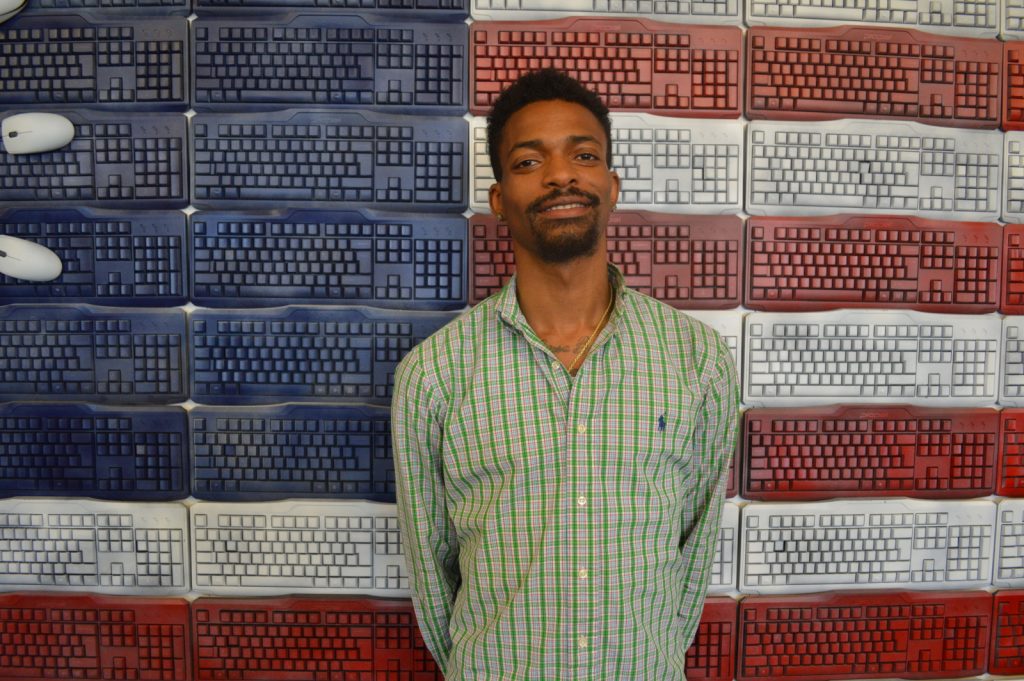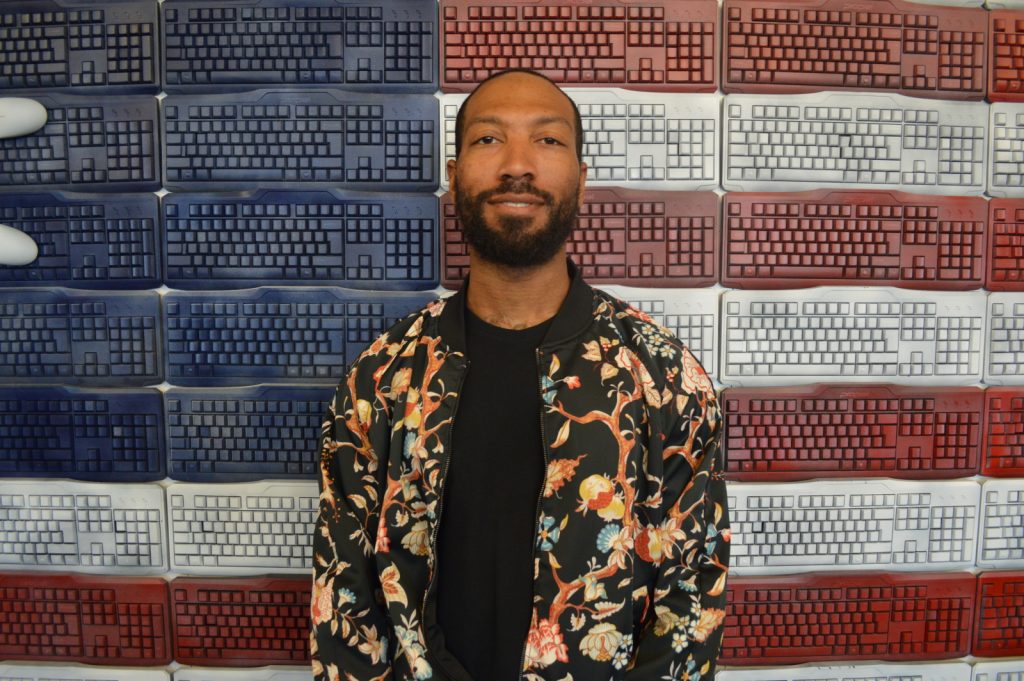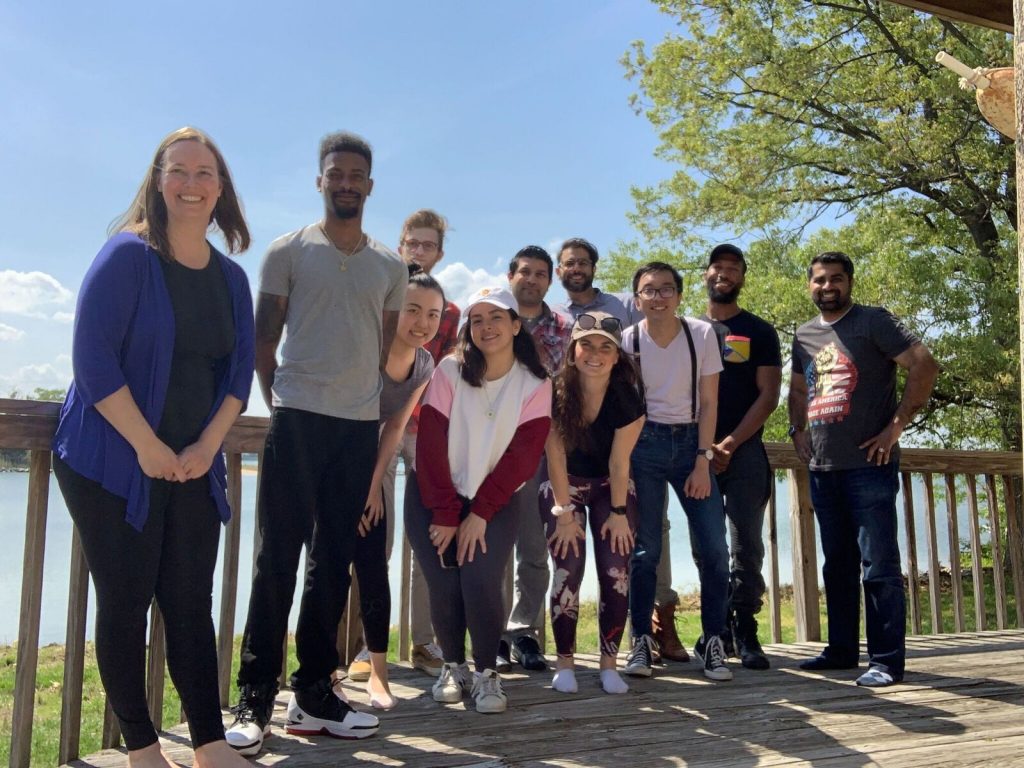After learning about the Georgetown Pivot Program from George Chochos during his feature on Episode 5 of Fifth Tribe’s Campfire Podcast, I was interested in hearing and learning more from someone with a different perspective than the program director: specifically, a Pivot Fellow (or two). Fifth Tribe recently brought on Marcus Butler and Marquis Hicks as interns, committing to providing professional experience that will align with and continue to cultivate the entrepreneurial skills that the men are developing within the Pivot Program. Pivot was launched late in 2018 and is a certificate program in business and entrepreneurship, designed for formerly incarcerated individuals who are returning to society (i.e. “returning citizens”); it couples academic work at Georgetown University with employment experience, preparing returning citizens to be entrepreneurial leaders or productive employees. Fifth Tribe became involved with the program after helping to launch the Pivot website and is now considered one of the Pivot employers.


Marcus, Marquis, and I sat down for an informal question-and-answer session about their experiences within the Pivot Program, as well as their internships here at Fifth Tribe. Here are some of the highlights from our conversation:
The Impact of the Pivot Program
1) How did you learn about the Georgetown Pivot Program?
Marquis: “I’ve been a part of the Freeminds Book Club and Poetry Workshop for years, and it was there where I found out about Pivot.
Marcus: “I heard about the program through a child support and fathering program. I was encouraged to apply.”
2) How has the Pivot Program’s curriculum helped you to feel more confident in your abilities? What is your favorite class?
Marcus: “The Pivot Program was the opportunity that I needed, and what I’ve learned so far has given me confidence about everything that goes into running a business. I feel comfortable pursuing entrepreneurship now because I’ve been given the tools to do so.”
Marquis: “My favorite class is Economics with Professor John Mayo.”
3) How has Pivot begun to help you or shape you so far? How has it impacted you?
Marquis: “This program has been highly impactful for me because, after being away for eight years, I needed help getting straight on course. I have entrepreneurs in my family – like my father and grandfather – so I’ve always been around entrepreneurship; but I lost track of it for a while. The Pivot Program helped me put all the pieces back together in a really positive way. It’s been a great springboard to coming home.”
Marcus: “Pivot has shaped me because of the great exposure to entrepreneurship I’m receiving. I’m being challenged to learn and develop new skills, and regardless of whether or not I become an entrepreneur, I have something to show for my hard work that I can share and teach – either to my kids or to someone I know.”
A Personal Look at the Fellows
1) After you were released from incarceration, what was your experience like with trying to find a job and transitioning back into society?
Marcus: “I wasn’t in jail for long, but even that short incarceration made it really difficult to even find someone who would give me an opportunity.”
Marquis: “I was personally convicted at a young age, and when I was released in 2009, the economy was still recovering from the recession. Finding a job back then was really difficult. When I went back [to prison], and was released again, it was like a whole other D.C. that I came back to. What George said about going to sleep in 1999 and waking up in 2011 – that could not be truer. That’s exactly how it felt. But the second time around, I had a stronger support system, and programs like the Pivot Program have really helped me, too.”
2) What is one of the most valuable lessons that you are learning as a Pivot Fellow, either in the classroom and in the working world?
Marquis: “I’m learning how to develop an intensified focus. I’m understanding how much focus goes into entrepreneurship, along with hard work and determination.”
Marcus: “The networking skills I’m learning are personally really valuable to me.”
3) What are your long-term goals, either personally or entrepreneurially?
Marquis: “In the short-term, I’m focused on getting back into society, finding my lane, and establishing a comfort zone – financially, professionally, and personally. Because of my family, I’ve always been exposed to entrepreneurship, so I never really felt like I wasn’t in business. But now it’s time for me to upscale and to build something… this is what Pivot is helping me do. The Program is exposing me to how to build a business. My long-term goal is to come up with a detailed business model that can be franchised.”
Marcus: “I want to start a company. I want to create work in my community, and offer jobs to youth and those who need an opportunity like I did. If someone needs a second chance or a fresh start, I want to be able to give that to them. I want to get to the point where I’m hiring at least one new person a year.”
Interning at Fifth Tribe
1) What skills do you feel like you’re strengthening or developing in this Fifth Tribe internship?
Marcus: “I’ve never done anything in digital marketing, so I’m learning something new about that every single day.”
Marquis: “I’ve been learning how to push an image or product across multiple different platforms. There is so much more that goes into pushing a product digitally than I thought, so I feel as though I’m developing skills within every part of that process.”
2) What is your favorite part about what we do here?
Marquis: “The sense of collective teamwork here is unlike anything I’ve ever been a part of.”
Marcus: “I don’t know where to start! Everybody works together but also exercises their own individuality and creativity, which I think is a really cool dynamic.”
3) What has been the coolest thing that you’ve done in your fellowship or in this internship so far?
Marcus & Marquis: “The retreat!”
Marquis: “The company retreat was awesome. I also will never forget my first day here when we all went out to happy hour together.”
Marcus: “I also went out to happy hour with Khuram early in my internship, and that was a really good time. I’ve really enjoyed working on the Wahed project, as well.”

Advice to Returning Citizens & Potential Employers
1) What advice would you give to other returning citizens?
Marcus: “Go beyond your horizon. Don’t go back to the same situation… find something different to do or different people to be around. Try to stay away from doing the exact same thing you were doing when you went down a negative path. Create new, positive situations for yourself.”
Marquis: “Be patient with yourself. People who have been removed from this world acclimate at a different pace, so give yourself time to adjust. It’s kind of like a baby learning to walk again… be patient and go at your own pace.”
2) What skills do you think returning citizens should focus on developing when entering the workforce?
Marquis: “Have a good attitude and focus on being productive and punctual.”
Marcus: “Focus on your goals and branch out from there.”
3) What would you tell a formerly-incarcerated individual who is considering applying for the Pivot Program?
Marquis: “Jump on board. Being locked up is the closest thing to being dead, so I’m always encouraging people to apply to this program. Come with a serious focus, be positive, and Pivot will help to get you where you want to be.”
Marcus: “This Program is rewarding, but it’s not easy. Make sure that this is something that you really want to do, and then commit to it.”
4) What would you tell an employer who is considering employing Pivot Fellows?
Marquis: “Be a part of the solution to gentrification. There is a tremendous talent pool that is not being utilized in the population of returning citizens. You have the chance to hire a great employee who will get the job done, you just have to extend the opportunity.”
Marcus: “Along those same lines, open the door for opportunity. You never know how it might impact someone’s life and your company.”
5) What can Fifth Tribe do to better support the returning citizens community?
Marquis: “Keep being involved with this movement. Especially in D.C., this is a really important issue. Continue to stay active, offer assistance to returning citizens, and get the word out about programs like the Pivot Program.”
Marcus: “I echo the same. Keep talking about this issue and offering opportunities to returning citizens – they won’t disappoint you.”
Once Fellows from the Pivot Program earn internships with local businesses, they are given the opportunity to align what they’re learning in the classroom with real situations and problems. By sharing their experiences, Marcus and Marquis emphasize not only the importance of transition and re-entry programs to previously-incarcerated individuals, but are also models for the endless potential of returning citizens. The Pivot Program creates opportunity where it’s needed most and reveals the critical nature of the marginalization of those who have been incarcerated. If you are an employer who is interested in partnering with the Pivot Program, or you know someone who could be a candidate for a fellowship, more information can be found here.

